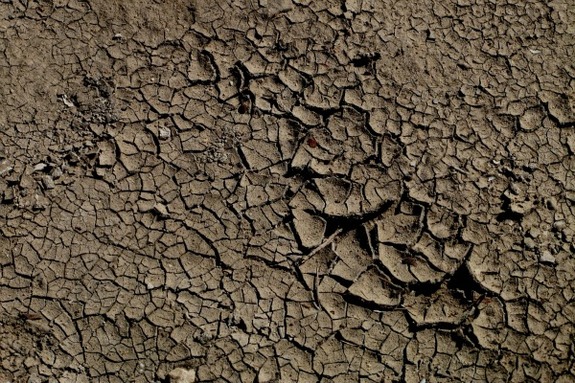Fierce Heat Waves & Stronger Storms Coming, Climate Report Warns


Humans' activities appear to have brought on more extreme weather — including more hot days, heat waves and heavy precipitation — and we can expect this to worsen in decades to come, according to a report being prepared by the leading international climate change organization.
A summary report, released today (Nov. 18), states that since 1950, cold days and nights have decreased, while warm ones have become more frequent globally, as has heavy precipitation. There is also evidence droughts have increased in some places, but decreased in others, the report by the Intergovernmental Panel on Climate Change says.
The rest of the century will bring more extremes, according to this scientific assessment, which predicts:
- At least a 99 percent likelihood of more frequent and intense daily temperature highs, as well as declines in daily lows.
- Heat waves that will become more frequent, longer as well as more intense.
- An increase in heavy precipitation, particularly in the high latitudes, the tropics and during winters in the northern mid-latitudes.
- More intense droughts in some places. [Photos Reveal Devastating Texas Drought]
- The wind speed of tropical cyclones, which include hurricanes, is expected to increase, at least in some places, but there may be fewer or no change in the number of cyclones.
- Extremely high coastal waters thanks to sea level rise
- More landslides and other events associated with high mountains
Predictions like these bring to mind disastrous events like the European heat wave of 2003, droughts that crippled Russian agriculture in 2010 and hit the U.S. hard this summer, as well as the heavy rains that flooded Pakistan in September.
However, climate change did not create these events. Rather, it sets up a situation that enables naturally occurring weather extremes to become more severe. So, the effect of climate change is visible only over the long term.
The situation is like a baseball player on steroids, according to Gerald Meehl, a senior scientist at National Center for Atmospheric Research in Boulder, Colo. If that player hits one home run, it's not clear if that home run is due to the steroids. To see how the steroids affected the player, it's necessary to compare his performance during the steroid-enhanced season with that from a previous one when he was not using steroids, Meehl said.
"Greenhouse gases are the steroids of the climate system," said Meehl, who served as a reviewer for part of the climate change report. "Greenhouse gases have changed the background state of climate such that the chances of setting heat records are much greater than (those of setting cold records)."
Get the world’s most fascinating discoveries delivered straight to your inbox.
Some changes are more easily observed and predicted than others.
By looking back 50 years at temperature records from across the continental U.S., Meehl and colleagues found that the ratio of days when temperatures exceeded their record high for that date to days when temperatures dropped below their record low for that date shifted in favor of record warmth. Between 2000 and 2010, the ratio of record highs to lows grew to 2 to 1.
That shift continued into the future, in their computer models, with warm days outnumbering cold ones as much as 50 to 1 by the end of the century. It is significant, Meehl points out, that the extreme cold days did not go away.
While it's intuitive that global warming would cause more extreme heat, the report suggests there's also a 66 percent or greater likelihood it will lead to more heavy rain and snowfall in many areas. That's because global warming means warmer air in some places, and the warmer the air, the more moisture it can hold, providing more water for a storm to dump, he explained.
Some changes are more difficult to predict than others.
While the summary report offers some predictions about tropical cyclones, which include hurricanes, looking ahead at these types of events can be tricky. Hurricanes are problematic because ideally they require global ocean-atmosphere models run for a century or more with higher spatial resolution than what current computers make feasible. Also, the observational record of hurricanes is spotty prior to the 1970s, when satellites began tracking them, so the historical record before then is more uncertain. [Images: Hurricane Hunters in Action]
The full IPCC report, "Managing the Risks of Extreme Events and Disasters to Advance Climate Change Adaptation," also addresses the human dimension, discussing the impacts of natural disasters caused by extreme weather events and how risk and losses can be mitigated. The full report is expected to be released in February 2012.
You can follow LiveScience senior writer Wynne Parry on Twitter @Wynne_Parry. Follow LiveScience for the latest in science news and discoveries on Twitter @livescience and on Facebook.



